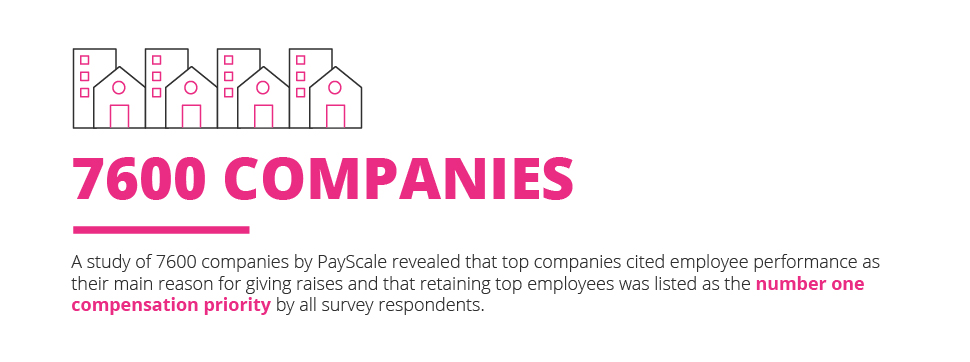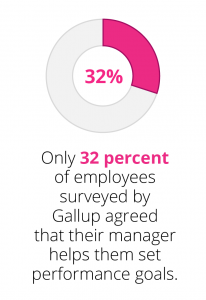How to increase your earning potential in 28 days
Even if you’re in a senior position, salary negotiations are probably right up there alongside submitting tax returns as one of your least favourite things to do. But no matter who you are – or what position you’re in- when you eventually need to ask for that raise, timing and preparation are everything.
Depending on how your company works, you’ll either have a monthly, quarterly or annual performance review coming up. These are crucial periods – as your boss is thinking about your role, your contribution to the company and your career growth – which makes it an opportune times to ask for a raise.
Whether you work in a financial, digital marketing, property development, systems and technology, or administrative field, your employer is looking for someone, a New Professional who cares about their professional development.

![NPN - Content Piece & Newsletter Elements [ DESIGN ] -02](https://www.getsmarter.com/blog/wp-content/uploads/2017/01/NPN-Content-Piece-Newsletter-Elements-DESIGN-02-300x274.png)
A study of 7, 600 companies by PayScale revealed that top companies cited employee performance as their main reason for giving raises and retaining top employees was listed as the number one compensation priority by all survey respondents.¹
With the stakes that high, you’re going to want to go into your performance review as prepared as you can be. Use this month to build a powerful case for yourself, by implementing this 4-week action plan:
Week 1: Outline clear expectations in your job description
Every employee needs to know the importance of their role and how it contributes to the company’s overall success.
[bctt tweet=” Only 32 percent of employees surveyed agreed their manager helps them set performance goals.” username=”getsmarter”]
Do you want to get a raise? The New Professional ensures they have a clear outline of the goals they should be striving towards.
This is where job descriptions or promise agreements are vitally important. A job description should clearly outline your role and responsibilities, and detail the goals you’re meant to strive towards. If your current job description does not clearly outline expectations for your role, you need to set up a meeting with your manager and ensure you’re aligned with their expectations of you.
Jamie Walters, the author of the book Big Vision, Small Business, suggests meeting once a month with your boss to talk about goals, in order to avoid any surprises or being caught off-guard by a task or priority you weren’t aware was expected of you.

Action outcomes:
- Read through your job description and become aware of the clear expectations you’re required to meet
- If your job description is not detailed with clear expectations, set up a meeting with your manager to discuss what your goals should be and how you can best align with their goals
- Write down a clearly defined, measured, and mutually agreed-upon list of SMART goals you can achieve within a specified timeframe
Week 2: Use KPIs to measure your results
KPI stands for Key Performance Indicator and is a method for measuring your performance. What have you achieved or accomplished against the goals that you set out for yourself, or that your manager expected of you?
Keeping track of your accomplishments not only ensures you have all the evidence you need to vouch for a raise when your performance appraisal comes along but also motivates you to keep achieving the goals you set out for yourself while highlighting any successes management may have missed – a key personality trait of the New Professional.
But you can go one step further than a simple list of wins: quantify your achievements.
Executive Branding Expert, David Topus, says:
“Metrics is the language of business. Anything that’s measurable and has metrics associated with it is high impact.”
However, not all accomplishments can be framed using percentages or monetary metrics. What’s important is that you are able to tangibly highlight the value you bring to the organisation and show how the work you do has an impact on the bottom line. Depending on the nature of your industry, this would mean making detailed lists of any notable accomplishments that positively impacted revenue; increased customer satisfaction, or improved your team’s productivity and performance.
By producing these findings, you can negotiate a raise supported by documentation and hard fact.
[bctt tweet=”What have you achieved against the goals that you set out for yourself?” username=”getsmarter”]
Action outcomes:
- Create a “brag sheet” highlighting your achievements
- Outline how these accomplishments have added value to your team, department, or the company
- Wherever possible, quantify these KPIs to show how you impacted the bottom-line
- Set bigger goals for yourself to achieve in the future based on your past performance
Week 3: Proactively seek to learn a new skill
Manager’s don’t want to just know that you’ve succeeded in fulfilling your job responsibilities – they want to know how willing you are to go above and beyond your job description to make an impact on your team and the company.
When explaining why she promoted an employee, Jenn Grasso, Vice President of Product at Le Tote, said:
“The most important thing she did was consistently exceed expectations in terms of her current role and job responsibilities. She always took on more than was expected of her, and managed these projects as well as her more senior colleagues.”
Nothing shouts “go-getter” to a manager more than someone who is constantly willing to learn new skills so they can put their hand up for more responsibility.
David Goldin, Founder and CEO of Capify told Business Insider millennials who want to be promoted or get a raise, should proactively seek learning opportunities: “Show that you want to learn.” With thousands of online courses out there, you have an opportunity right now to learn a new skill set, or to upskill in your current competencies to add more value to your team and embrace the life of a New Professional.
By building up a list of online courses, credentials or certifications you’ve received, your boss will be able to trust that you’re up for the challenge of taking on new tasks and projects.
[bctt tweet=”Millennials who want to be promoted or get a raise, should proactively seek learning opportunities” username=”getsmarter”]
Action outcomes:
- Sign up for an online course either relating to or adding to your role
- Ask for training from someone in a different department. For example: if you work in sales but want to learn more about social media marketing, ask the Digital Marketing Manager to sit with you once a week and teach you about this field of work
- Put your hand up to volunteer for projects or tasks that may be slightly outside of your job responsibilities to expand your scope
Week 4: Look for opportunities to be a leader
The reality is, your boss has a limited budget for handing out salary increases, and you’re in competition with the rest of your team (because let’s be honest, everyone wants more money, all the time).
Opportunity plays a critical role in deciding who gets a raise. But opportunities to prove your value aren’t going to fall off a magic tree for you. Which means, the only way you’re going to stand out from the crowd as a New Professional and be a seen as a leader, is by taking initiative and looking for opportunities.
If you see there’s a company or team need, put your hand up and volunteer to lead with a solution. Show your boss that you’re able to create order from chaos and provide direction when there’s ambiguity. But be aware, if you’re already in an executive position, your boss will be looking for leadership from you that’s in support of the team goal over your individual goals.
As Ben Horowitz says in his recent book The Hard Thing About Hard Things, it’s important for senior managers to have the right kind of ambition, which is about optimising for the company’s success over personal success.
If you’re not currently in an executive role, you may feel overwhelmed to take on a bigger role or lead a project that seems above you, but if you want to be recognised as a leader, you have to take the first step.
“I always did something I was a little not ready to do. I think that’s how you grow. When there’s that moment of ‘Wow, I’m not really sure I can do this,’ and you push through those moments, that’s when you have a breakthrough.”
– Marissa Mayer, CEO of Yahoo
Taking initiative and looking for opportunities to lead will directly impact the results you have to show on your list of accomplishments, as well as having recognisable proof of your ability to take on more responsibility.
Action outcomes:
- Find out what the team is working on and identify any gaps where you could step in and take charge
- Chat with your manager about areas where he/she needs support and how you can best help out
Which of these workplace-ready, verifiable new skills do you need to develop over the next month to impress your employer today as a New Professional?





